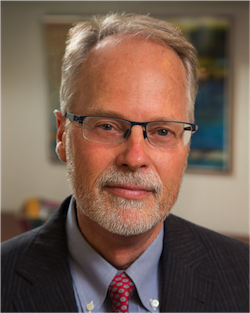The 42nd annual Charlton lecture will be held on Wednesday, October 25, 4-5.30 pm, in the Sackler DeBlois Auditorium. The lectureship, established in 1975 in honor of Mr. Earle P. Charlton, has since evolved to include a poster competition that serves as a platform to recognize outstanding research work performed by graduate and professional students on the medical school campus. This year, the poster competition will be held on Tuesday, October 24 and Wednesday, October 25 in Sackler 114.
The keynote lecture will be delivered by Dr. Michael Irwin, the Norman Cousins Professor of Psychiatry and Biobehavioral Science at UCLA Geffen School of Medicine, Director of the Cousins Center for Psychoneuroimmunology at the UCLA Semel Institute, Director of the Mindful Awareness Research Center at the UCLA Semel Institute, and Director of the Center’s Inflammatory Biology Core.
Mr. Earle P. Charlton was a renowned entrepreneur and a social benefactor, as exemplified by his legacy, the Charlton Trust. Mr. Charlton established a chain of stores throughout Massachusetts back in 1890, before merging with the Woolworth company and expanding to the west and Canada. The Woolworth company would later go on to acquire several brands throughout the twentieth century. However, due to increased competition in the retail sector, the company chose to focus on a select brands and is today represented by the Foot Locker stores. Mr. Charlton passed away in 1930, and is commemorated by the Charlton Memorial Hospital in Fall River, MA, a town which benefitted greatly from his entrepreneurship and generosity. (Source – https://en.wikipedia.org/wiki/E._P._Charlton_%26_Company)
About the Speaker
Dr. Michael Irwin, the Norman Cousins Professor of Psychiatry and Biobehavioral Science at UCLA Geffen School of Medicine, Director of the Cousins Center for Psychoneuroimmunology at the UCLA Semel Institute, Director of the Mindful Awareness Research Center at the UCLA Semel Institute, and Director of the Center’s Inflammatory Biology Core. His ongoing work is focused on the “reciprocal interactions between the immune- and central nervous systems, and the role of sleep disturbance on the molecular and cellular inflammatory signaling pathways that influence depression- and physical health risk with a focus on cancer survivors and older adults” (source).
Dr. Irwin is best known for his pioneering studies that showed the relation between stress and the hypothalamic-pituitary-adrenal (HPA) axis, and the immune system through receptor activation mediated mechanisms. He also showed that b-adrenergic receptors played a major role in inflammation and anti-viral immunity in a variety of disease conditions ranging from physiological to psychosomatic ones. His broad range of work integrates data at various levels of biological investigation – from the mechanistic details of signaling pathways to epidemiological data and clinical case studies. He is also the recipient of a large number of awards for his ground-breaking work. More details on his work can be found here.


